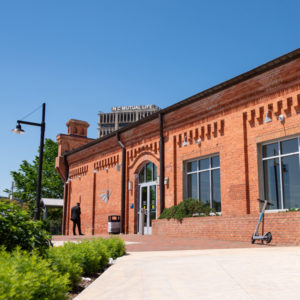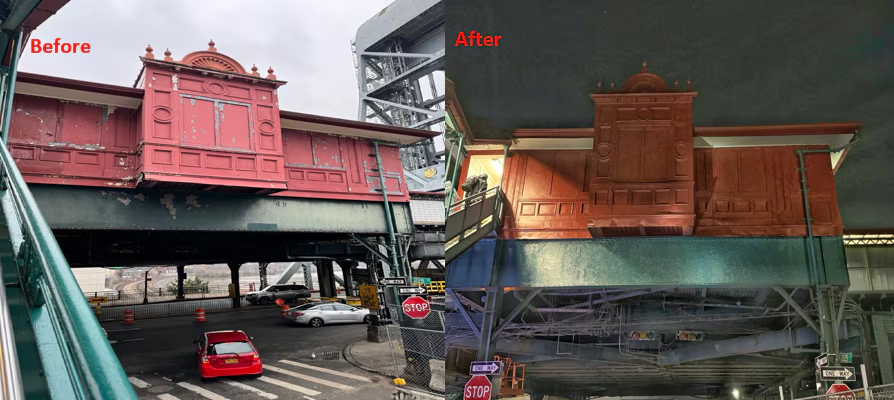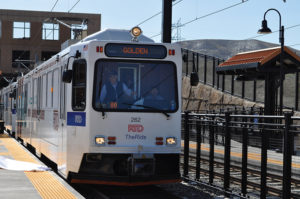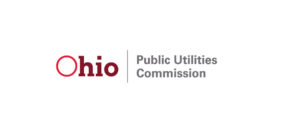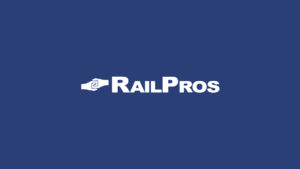N.J. to N.Y. rail project could gain from national gasoline-tax boost
Written by jroodDrivers may have to pay more at the pump so train riders can have an easier commute into New York City - as well as improved highways and repaired bridges, the Newark, N.J., Star Ledger reports. But they likely won't have New Jersey to blame for raising taxes on gasoline.
Key federal lawmakers and
transportation advocates said raising the federal gas tax could be the only way
to establish a long-term, stable funding source for mass transit expansion
projects – like the $8.7-billion plan to build a second commuter rail tunnel to
Manhattan.
But Governor-elect Chris
Christie has vowed not to raise New Jersey’s 14.5-cent-per-gallon tax to
replenish the state’s diminishing funding resources for road and rail projects.
Both state and federal taxes – which combined add 32.9 cents to the per-gallon
price – haven’t been raised in about two decades.
Rep. James Oberstar, D-Minn.,
a leading voice on transportation issues, wants a six-year, $550-billion
federal transportation program that would include a 5-cent federal gas tax
increase. The 18.4-cent-per-gallon federal gas tax, which hasn’t been raised
since 1993, provides most of the money for projects that benefit from the
program.
Oberstar, who is chairman
of the House Transportation and Infrastructure Committee, has said funding for
the six-year program will fall about $140 billion short if the federal gas tax
remains the same.
Rep. Bill Pascrell Jr.,
D-Paterson, said the federal government should have acted quicker to address
New Jersey’s transportation needs so it wouldn’t be forced to raise taxes
during a recession. But now, he said, Congress must act.
"The last thing we
want to do is increase a gas tax," said Pascrell, who sits on the House
Ways and Means Committee. "We should have done this five years ago when we
didn’t have such a downturn in the economy."
Similarly, State Sen. Ray
Lesniak, D-Union, said New Jersey should consider raising its own gas tax
because the state may have nowhere else to turn when its Transportation Trust
Fund runs out of money in 2011. The 14.5-cent-per gallon tax now charged by New
Jersey contributes to the fund.
The situation concerns
critics who say New Jersey commuters could ultimately pay too much for the rail
tunnel to Manhattan, an $8.7-billion project that they believe won’t do enough
to relieve traffic congestion in the region.
Christie, in turn, has
called for establishing a "pay-as-you-go" system that would fund transportation
projects without borrowing additional money or raising taxes. Christie vowed
that legislators "are not going to tax our way" out of years of
fiscal mismanagement of the state’s finances.
"We have a structural
problem in New Jersey which must be fixed, so those who advocate increased
taxes as a solution have just misdiagnosed the problem," he said.
The state has some of the
most congested roads in the country, and many of its bridges are in disrepair.
But critics say it lacks mass transit capacity that could provide needed
relief.
Others, as a result, say
they’re concerned that Christie’s anti-tax vow will limit the resources the
state has for contributing to the tunnel and other projects.
Before losing the election,
Governor Corzine proposed raising New Jersey’s gas tax to replenish the
Transportation Trust Fund.
The
fourth-lowest-in-the-nation tax hasn’t been raised in two decades, and
transportation advocates worry that the Christie administration will either
borrow money or fail to provide any funding to save the Transportation Trust
Fund.
"Governor-elect
Christie needs to ensure the stability of New Jersey’s transportation network
and that is going to require more money – plain and simple," said Zoe
Baldwin, spokeswoman for the Tri-State Transportation Campaign.
The tunnel project, which
would double mass transit capacity into New York City, has received funding
commitments of $3 billion from the Port Authority; $1.5 billion from the state;
and $1.25 billion from the New Jersey Turnpike Authority. The rest of the money
– about $3 billion – would come from the federal government. So far, Congress
has committed about $650 million.
The public, however,
remains largely opposed to raising the gas tax. A poll released Tuesday by
Connecticut-based Quinnipiac University found 62 percent of those surveyed
oppose increasing the gas tax to pay for road and transit improvements in New
Jersey. But the opposition to a gas tax hike is down from the 74 percent who
were opposed to it in 2007.
Oberstar has said Congress
needs to double its funding of transportation programs over the next six years
so the nation can fix a crumbling transportation infrastructure that’s outdated
and over capacity.
"A six-year
authorization is important because states require a long time to plan, contract
and build surface transportation projects," he said. "Therefore, the
states need to know what federal funds are available in the out years as part
of their planning process."

